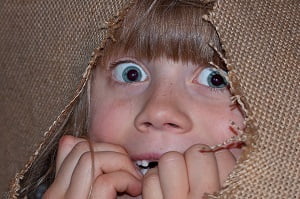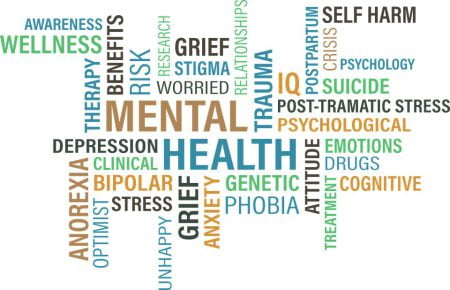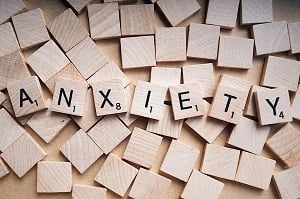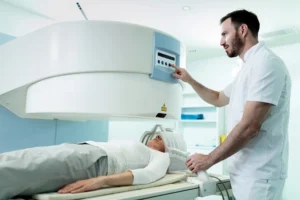Phobia of Holes (Trypophobia)
- Updated on: Jul 5, 2024
- 5 min Read
- Published on Nov 23, 2020

What Do You Mean by Phobia of Holes (Trypophobia)?
Phobia of holes or trypophobia refers to the fear of a cluster of small holes and cracks. People who have trypophobia often feel discomfort, headache, and may even get panic shocks. It is a type of anxiety disorder. The research is still underway about trypophobia being a genuine disorder or not. Trypophobia is not considered a mental disorder, and there is no diagnosis available for it in the Diagnosis and Statistical Manual, fifth edition (DSM-5) by the American Psychiatric Association.
Exposure therapy can help many patients manage their repulsions to holey patterns.
What Could Be the Symptoms Associated With Phobia of Holes?
People with trypophobia (fear of holes) get scared of watching completely packed spaces like a beehive, seed pod, or closure image of some pores. The following are some of the symptoms found in people who are scared of holes or closely packed spaces:
- Feeling repulsed and disgusted
- Visual discomforts such as eyestrain, distortions, or illusions
- Feeling distressed and uncomfortable
- Itchy feeling or feeling of something crawling over the body.
- Heart palpitations
- Goosebumps
- Panic shocks
- Sweating
- Nausea and vomiting
- Trembling and shaking
Read:
Phobia Linked With Other Mental Disorders
Nyctophobia: Fear of the Darkness
What Triggers the Phobia of Holes?
There is not much information about what triggers the phobia of holes (trypophobia), but research is underway to understand the basic cause. However, the following are some of the common causes which are found to be associated with trypophobia:
- Honeycombs
- Hair follicles
- Soap bubbles
- Skin pores
- Swiss cheese
- Pomegranates
- Showerheads
- Poppy-seeds
- Bagels
- Strawberries
- Lotus seed pods
- Coral reefs
- Closed images of rows of holes or teeth embedded on an arm, shoulder or face.
What Research Says About the Phobia of Holes?
There is limited information on trypophobia. Researchers believe that disgust or fear of threats is an adaptive evolutionary response, and sometimes these feelings keep us away from the danger.
According to a study on fear of holes in 2013, phobia of holes can be associated with a visual appearance of dangerous animals or diseased skin. This has suggested that trypophobia has an evolutionary basis. There may be chances that people recognize holes as the spots present on dangerous animals like tigers, crocodiles, and snakes. Therefore, they experience great distress once they see any object that triggers their phobia of holes.
According to a study published in 2017, people sometimes associate hole patterns with infecting ectoparasites (parasites that live outside the body), and skin transmitted pathogens, leading to the development of disease symptoms like itching and skin crawling.
According to a study published in Psychological Reports in 2017, people may feel discomfort while watching objects similar to small holes patterns. Their feelings will be quite related to visual patterns themselves rather than an association with dangerous animals.
The American Psychiatric Association has not given recognition to trypophobia as an official fear disorder. However, the symptoms are similar to other phobias, but its diagnosis is not mentioned in DSM-5.
How Could the Phobia of Holes Be Diagnosed?
A medical interview can help in the initial diagnosis of trypophobia (phobia of holes). The patient is asked a few questions related to his/her emotional and physical response that develops while watching a cluster of holes. Doctors may also enquire about any health history related to anxiety disorders. There is no proper diagnosis for trypophobia as it is not being mentioned under the mental disorders list.
Is There Any Treatment for Phobia of Holes?
A medical interview can help in the initial diagnosis of trypophobia (phobia of holes). The patient is asked a few questions related to his/her emotional and physical response that develops while watching a cluster of holes. Doctors may also enquire about any health history related to anxiety disorders. There is no proper diagnosis for trypophobia as it is not being mentioned under the mental disorders list.
What Are the Available Treatment Options for Phobia of Holes?
There is no specific treatment for trypophobia; however, the treatments used in other types of phobia can also be used for this type of phobia. For example, exposure therapy may help manage repulsions to holey patterns in some cases.
Following are some of the treatments that may help you reduce or manage the symptoms of trypophobia:
Exposure Therapy
This is also called desensitization therapy and involves the exposure of a person to the source of the fear object or situation in a safe environment. In this process, the phobic person starts feeling fear while looking at the clusters of holes pictures like honeycomb, skin pore, sponges images, and tries to touch them. The person actually imagines the closed structures like honeycombs, which results in the development of trypophobia symptoms. The process is repeated till the person shows less or no symptoms towards the source of fear.
Cognitive Behavioral Therapy
Cognitive-behavioral therapy involves creating a positive image related to the fear of the object. In this therapy, the psychiatrist will ask the patient to discuss the unrealistic thoughts and the source of fear and then replace these thoughts with other positive thoughts (like helping them in creating a beautiful image of the cluster of holes and convincing them that it will not cause any harm to them)
Relaxation Techniques
Relaxation techniques usually help in reducing anxiety and stressful conditions. Some breathing exercises, relaxing exercises, and visualization techniques can be used in the treatment process. Yoga and meditation can also be done to release the stress. Patients are asked to see some beautiful and soothing scenes that help them to relax, like sunset and flowers. Patients are advised to distract themselves from the phobia source and think about something positive that gives them relief.
Medication
Although there is no specific medication available for the phobia of holes, doctors usually recommend drugs like sedatives and beta-blockers to reduce the symptoms. All these medications are also given in other phobia types to reduce the symptoms. Sedatives such as tranquilizers and benzodiazepines can be used to relieve the anxiety and distress related symptoms. Beta-blockers (propranolol) are usually given to reduce panic symptoms and provide relaxation. If a patient complains about nausea, the doctor can prescribe drugs to treat it. The medication treatment works well if done in combination with other therapies like CBT, exposure therapy, and relaxation techniques.
Living With Fear of Holes
You should call your doctor if you experience these symptoms:
Depression or anxiety or Obsessive-compulsive disorder (OCD).
Extreme level of irritability
Insomnia / sleeplessness
Panic attacks
What questions should I ask my doctor?
You may want to ask your healthcare provider these questions when you meet them:
What causes trypophobia?
What is the best treatment for my situation?
Should I try exposure therapy or any other treatment? What are the possible outcomes of it?
How long will I need this exposure or any other therapy?
What are the signs of complications? How can I watch for signs of such complications of trypophobia?
FAQs
What Is the Fear of Clustered Holes Called?
Fear of clustered small holes is called trypophobia or phobia of holes. The things which usually trigger this phobia include lotus seed, honey comb, sponges, seed pod, hair follicles, pomegranates, shower heads, soap bubbles, swiss cheese etc.
Is Trypophobia Deadly?
Trypophobia is not deadly. This is a phobia of holes which cause the people to feel discomfort and sometimes panic. The symptoms of this phobia could be fever, nausea, heart palpitations, vomiting, and headache, trembling and shaking of body. Trycophobia has still not been recognized as a genuine phobia by American Psychiatric Association and has not been listed in mental disorders list.
What Is the Reason for Trypophobia?
According to the proposed theories by researchers, trypophobia may be due to some evolutionary response that could be linked with some dangerous animals or skin infected diseases. People recognized cluster of holes similar to the spots on the dangerous animals (tigers, snakes and crocodiles) and skin infections due ectoparasites.
Is Trypophobia Curable?
Although, there is not any specific treatment available for trypophobia , but doctors usually treat this with drugs and therapy which are usually given in other phobia. The treatment usually involves exposure therapy, cognitive behavioral therapy and some medications (sedatives and beta blocker agents).












